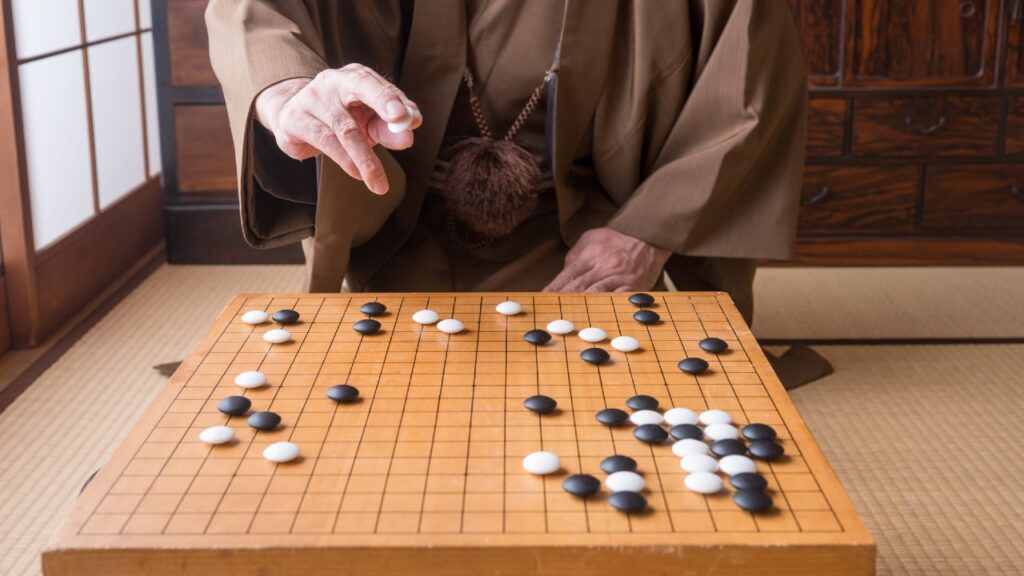
Smartphone games have become a part of everyday life for many people.
Our many easy-to-play games are perfect for killing time on your commute or during your free time.
However, in recent years, more and more people are quitting smartphone games.
So this time, we’ll be presenting a ranking of reasons why people quit playing smartphone games.
Let’s take a closer look at why so many people are turning away from mobile games.
There are many reasons why people quit playing smartphone games, but here are seven main factors:
We will explain each reason in detail below, so please refer to it.
目次
- 1 Ranking 1. I felt like I was wasting my time
- 2 Ranking 2. Financial burden caused by charges
- 3 Ranking 3. Adverse health effects
- 4 Ranking 4. Bored with game content
- 5 Ranking 5. Switching to other hobbies and activities
- 6 Ranking 6. Community and competition stress
- 7 Ranking 7. Dissatisfaction with game management
- 8 summary
Ranking 1. I felt like I was wasting my time
Many people say that one of the reasons they stopped playing smartphone games is that they felt it was a waste of time.
While smartphone games are fun, it’s easy to lose track of time and get so engrossed in them that many people have found themselves playing for hours without realizing it.
If this situation continues, it will have a negative impact on your work, studies and everyday life in general.
It interfered with work or studies
If you become too addicted to smartphone games, you will have less time to devote to work or study.
For example, you may become so focused on gaming on your way to work or school that you end up being late for work or class.
Also, continuing to play games during breaks or lunch may mean missing out on a chance to refresh your mind, which can lead to poorer performance in the afternoon.
Furthermore, taking away study time from home to gaming can lead to lower academic performance and poor preparation for exams.
As such, one of the reasons why smartphone games can interfere with work or study is the difficulty in managing time.
They get so engrossed in gaming that they put off important tasks, which results in inefficiency.
If this continues in the long term, it will inevitably have a major impact on your career and studies.
Impact on daily life
Excessive smartphone game play can have a huge impact on your daily life.
For example, communication with friends and family may decrease, leading to weaker relationships.
Being so absorbed in gaming can lead to cutting down on food and sleep, which can lead to poor health.
In particular, playing games before going to bed is known to reduce the quality of your sleep due to the effects of blue light, leading to poor health the next day.
Gaming addiction can also limit your time for other hobbies and activities.
Activities that should be enjoyed, such as reading, sports, and listening to music, are put on the back burner, and life becomes unbalanced.
This can reduce opportunities to feel fulfilled and satisfied and increase mental stress.
Furthermore, smartphone games often require in-game purchases, so the financial burden cannot be ignored.
Accumulating charges can impact your finances and limit other necessary expenses.
If this situation continues, the quality of life will decrease and the mental burden will increase.
summary
The most common reason given for quitting smartphone games is that they “felt like it was a waste of time,” and the underlying reason for this is the negative impact they have on work, studies, and everyday life in general.
It is important to maintain the fun of smartphone games while also maintaining a reasonable playing time in order to lead a healthy and balanced lifestyle.
Proper time management and self-control are key to having a healthy relationship with mobile gaming.

Ranking 2. Financial burden caused by charges
One of the reasons people quit playing smartphone games is the financial burden of paying for them.
Many smartphone games are free to play, but you often have to pay in order to become stronger or obtain special items in the game.
This charging system often causes financial strain and ultimately leads players to quit playing the game.
The gap with non-paying players
Many smartphone games have a system in place that allows players to gain an advantage in the game by making in-game payments.
For example, many of the gacha (random item acquisition system) that allow you to obtain powerful characters and weapons require you to pay a fee.
This results in a huge gap between non-paying players and paying players.
This disparity directly translates to competitiveness within the game.
Paying players can collect powerful equipment and characters, while non-paying players are unable to compete, making it difficult for them to feel a sense of accomplishment or enjoyment in the game.
If this situation continues, non-paying players will gradually lose interest in the game and eventually quit.
The temptation to pay and its impact
The payment system of smartphone games constantly tempts players to make payments.
There are many mechanisms to stimulate players’ desire to purchase, such as limited-time events, special sales, and exclusive items.
Because of this, many players, once they start making in-game purchases, end up making more and more in-game purchases.
The temptation of such charges is a major factor in causing financial burden.
In particular, for young players and those with limited financial means, the amount of money charged can be a heavy burden and affect their daily lives.
For example, there are cases where people end up spending their living expenses or tuition fees on games, leading to financial troubles.
In addition, dependence on charges increases mental stress.
Continuing to pay can lead to feelings of self-loathing and regret, which can have a negative impact on your mental health.
If this negative cycle continues, it often leads to the player eventually deciding to quit gaming altogether.
summary
The “financial burden caused by in-game purchases” is a very big factor in people quitting smartphone games.
The gap between players who do not pay and the temptation to pay can have a serious impact on players’ financial and mental state.
It is important to spend moderately, exercise self-control and build a healthy relationship with games.
By controlling your spending, you can enjoy your games while reducing your financial burden and living a less stressful life.

Ranking 3. Adverse health effects
Many people cite “negative health effects” as a reason for quitting smartphone games.
Because smartphone games are so easy to play, people tend to play them for long periods of time, which can have a significant negative impact on their health.
In particular, eye fatigue, decreased vision, lack of sleep and poor physical condition are known to be typical problems.
Eyestrain and decreased vision
Playing smartphone games for long periods of time puts a lot of strain on your eyes.
Staring at a smartphone screen for long periods of time puts excessive strain on the eye muscles, causing fatigue.
In particular, concentrating on the small screen of a smartphone can strain your eyes and lead to a decline in vision.
Additionally, the blue light emitted by smartphones is known to have a negative effect on eyesight.
Blue light damages the retina and, if exposed to high levels over a long period of time, can cause vision loss and eye strain.
In addition, it can also cause symptoms such as dry eyes and blurred vision.
To avoid these problems, it is important to take regular breaks while playing smartphone games.
You can reduce eye strain by following the “20-20-20 rule” by looking at 20 feet ahead for 20 seconds every 20 minutes.
It may also be effective to wear blue light blocking glasses or adjust the brightness of your screen accordingly.
Lack of sleep and poor health
I often get so absorbed in smartphone games that I end up staying up late.
Playing smartphone games before going to bed can excite your brain and make it difficult to fall asleep.
Additionally, blue light suppresses the secretion of melatonin, reducing the quality of your sleep.
If this situation continues, it can lead to chronic sleep deprivation and reduced daytime performance.
Not only can it cause a lack of concentration and make you more easily fatigued, but it can also lead to a weakened immune system and metabolic disorders.
As a result, you may catch colds more easily and gain weight.
In addition, using a smartphone in the same position for a long period of time can cause physical discomfort such as stiff shoulders and back pain.
In particular, since players often play with poor posture, it puts strain on muscles and joints.
summary
The increasing number of people who are quitting smartphone games due to their negative impact on their health includes specific problems such as eye fatigue and decreased vision, lack of sleep and poor physical condition.
To reduce these health risks, it is important to limit the amount of time you spend playing smartphone games and maintain a healthy lifestyle.
By taking adequate rest and ensuring good quality sleep, you can maintain your health while still enjoying smartphone games.

Ranking 4. Bored with game content
One of the reasons people stop playing smartphone games is that they get bored with the game content.
No matter how fun your game is, if it continues to involve repetitive tasks and a lack of new content, players will eventually lose interest.
This is the main reason people are moving away from mobile games.
Repeating the same task
Many smartphone games are designed to progress by repeating certain missions or tasks.
For example, it is common to defeat enemies to increase your level and collect items to strengthen yourself.
However, if these tasks are monotonous, players will gradually become bored.
Doing the same tasks day after day makes the game less fresh and fun.
In particular, when you are required to clear the same dungeons or defeat the same enemies repeatedly to gather resources, it can feel like a chore and reduce motivation.
When this monotony continues, players often move on to other games in search of new excitement.
Lack of new content
It is important for smartphone games to continually add new content to keep players interested.
However, if the development team has limited resources, the addition of new content may be delayed.
As a result, players become bored with the existing content and abandon the game.
For example, if new characters, storylines, events, etc. are not added quickly enough, players will no longer feel that the game is fresh.
In particular, without regular updates and events, players will gradually lose interest in the game and turn their time to other games or hobbies.
Also, in some games, content for paying users is prioritized, meaning that non-paying users may end up with less content to enjoy.
This will frustrate non-paying users and motivate them to quit the game.
summary
Getting bored with the game content is a major reason for quitting smartphone games.
With repetitive tasks and a lack of new content, players will gradually lose interest and look elsewhere for entertainment.
To prevent this, it is important for game developers to continually provide new content and give players a fresh experience.
It is necessary to keep players motivated by adjusting the difficulty appropriately and adding new elements.

Ranking 5. Switching to other hobbies and activities
The reason given for quitting smartphone games was “switching to other hobbies or activities.”
Many people are choosing to live a more fulfilling life by replacing the time they spend playing smartphone games with other meaningful activities.
In particular, activities like sports and reading promote mental satisfaction, physical health, and help build real relationships.
Fulfillment through sports and reading
The sense of fulfillment you can get by quitting smartphone games and spending time on sports or reading is enormous.
Sports not only improves your physical fitness, but also helps reduce stress.
For example, jogging, yoga, and team sports can help you maintain your health and add energy to your daily life if you do them regularly.
Reading is also a great alternative hobby to mobile games.
Gaining new knowledge through reading is intellectually stimulating and promotes personal growth.
In particular, reading books from a variety of genres, such as business books, self-help books, and novels, can help broaden your horizons.
Reading also has a relaxing effect, making it the perfect way to unwind in the evening.
These activities provide a sense of accomplishment and satisfaction that is different from smartphone games.
By physically moving your body and gaining new knowledge, you can find new joy in your daily life.
The importance of real human relationships
Many people find that quitting smartphone games leads to placing more importance on real-life relationships.
Relationships in games are virtual and not the same as real-life relationships.
Connecting with friends and family in person deepens emotional connections and has a positive impact on our mental health.
For example, dining out with friends, traveling with family, and participating in local community activities can help you build real relationships.
This can help improve social skills and reduce feelings of loneliness.
You can also find new friends who share your interests through real-life interactions.
In addition, social contributions such as volunteer work are also a meaningful way to spend time instead of playing smartphone games.
Spending time helping others gives you a sense of self-satisfaction, accomplishment, and social connection.
summary
Switching to other hobbies or activities is a very strong reason for quitting smartphone games.
Activities like sports and reading promote mental fulfillment and physical health, bringing new joy to everyday life.
Building real relationships also improves your mental health and social skills.
This will enable you to live a more fulfilling life without becoming dependent on smartphone games.

Ranking 6. Community and competition stress
One of the reasons I quit playing smartphone games is the stress of the community and competition.
One of the attractions of online games is the ability to interact and compete with other players, but this can also be a source of stress.
Problems with other players and the stress of continually losing often lead to people deciding to quit the game.
Trouble with other players
In online games, communication with other players is essential.
There are also many situations that require cooperative play, such as team battles and guild activities.
However, it is not rare for problems to arise due to differences in opinions or inconsistencies in playing styles between players.
For example, arguments can arise due to differences of opinion over in-game roles or strategy.
Furthermore, some players may intentionally disrupt other players (“trolling”) or harass others by using abusive language.
These types of problems can greatly ruin the enjoyment of the game and can be a source of stress.
There are also issues of bullying and exclusion within in-game communities.
This can put a strain on your mental health and make it difficult to continue playing the game.
These problems can have a particularly serious impact on impressionable young people.
The stress of constantly losing
In online games, it is common for matches to have a clear winner and loser.
Although the sense of accomplishment you get from winning is great, the stress of continually losing is also enormous.
Especially in ranked or competitive games, repeated losses can hurt your self-esteem and sap your motivation.
The stress of constantly losing doesn’t just lower your in-game rating, it also affects your self-esteem.
Negative feelings such as “I’m not good at it” or “I’m not as good as other players” can arise, and you may lose confidence.
This mental pressure builds up and makes it harder to enjoy the game, eventually leading to the decision to quit.
Furthermore, some games have a system in place that allows players to become stronger by paying, making it more difficult for non-paying players to win against paying players, which is another source of stress.
Such economic disparities undermine a sense of fairness among players and cause them to abandon the game.
summary
The stress of community and competition is a very important reason for quitting smartphone games.
Trouble with other players and the stress of continually losing can increase a player’s mental burden and motivate them to quit the game.
In order to mitigate these issues, it is necessary to create a healthy community environment and foster a spirit of fair play among players.
It is also important to find a play style that makes the game less stressful while still maintaining the enjoyment of the game.

Ranking 7. Dissatisfaction with game management
One of the reasons people quit playing smartphone games is “dissatisfaction with the game management.”
Players play games because they want them to be fun and fair, but unfair management policies and frequent bugs and errors can make them lose trust in the game and decide to quit.
Unfair management policy
Perceiving the game to be unfair can be a major source of stress for players.
For example, repeated events and updates that give advantages only to certain players or paying users can lead to frustration.
When non-paying players are put at a disadvantage and the sense of fairness is lost, it leads to increased conflict and dissatisfaction among players.
Another source of dissatisfaction is the feeling that the management is ignoring players’ opinions and feedback.
If players don’t see the improvements and new content they want, they will likely lose interest in the game and move on to other games.
Furthermore, if operators do not take appropriate action when some players are engaging in fraudulent activities, this will also undermine player trust.
Lots of bugs and errors
Game stability is an important factor for players to continue playing the game. Games that frequently have bugs or errors can be very frustrating for players.
If the game suddenly crashes or you encounter a major bug that blocks your progress, it can ruin your experience.
In particular, the emergence of new bugs after an update can cause a loss of trust in the company’s quality control.
When bugs occur that cause players to lose the game data they have spent a lot of time progressing through, or render items they have purchased unusable, player frustration reaches a boiling point.
Furthermore, in games where bugs and errors occur frequently, player dissatisfaction increases further if the management does not respond promptly.
If support from management is delayed or continues to be inadequate, players will lose trust in the management and decide to quit the game.
summary
Dissatisfaction with game management is a major reason for quitting smartphone games. Unfair management policies and frequent bugs and errors are factors that erode players’ trust.
In order to resolve these issues, it is necessary for the management to take players’ opinions seriously and operate in a fair and transparent manner.
It is also important to quickly fix bugs and errors and provide a stable gaming environment.
This allows players to enjoy the game with peace of mind and helps them to play for a long time.

summary
There are many reasons why people quit playing smartphone games, but here are the seven main factors:
-
Feeling like a waste of time : Spending too much time on smartphone games can have a negative impact on work, studies, and daily life.
-
Financial burden caused by in-game charges : The system that gives players an advantage in the game by paying creates a financial burden, creating a gap between players who do not pay and those who do.
-
Adverse health effects : Playing for long periods of time can cause eye fatigue, impaired vision, lack of sleep, and poor physical condition, which can have a negative impact on your health.
-
Game boredom : Players get bored with your game due to repetitive tasks and a lack of new content.
-
Shift to other hobbies and activities : Spending time on other hobbies and activities, such as sports or reading, can help you live a more fulfilling life.
-
Community and competitive stress : Stress caused by trouble with other players or constantly losing can reduce motivation to continue playing the game.
-
Dissatisfaction with game management : Unfair management policies and frequent bugs and errors erode players’ trust and cause them to quit the game.
Due to these factors, many people are deciding to quit smartphone games.
Smartphone games are an easy and fun form of entertainment, but it’s important to properly control play time, spending, and health.
Additionally, operators are expected to listen to players’ opinions and provide a fair and balanced gaming environment.
By practicing healthy gaming, you can enjoy mobile games while still maintaining a balance with other important aspects of your life.




